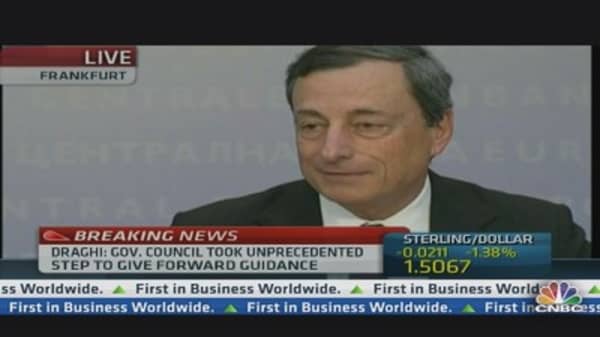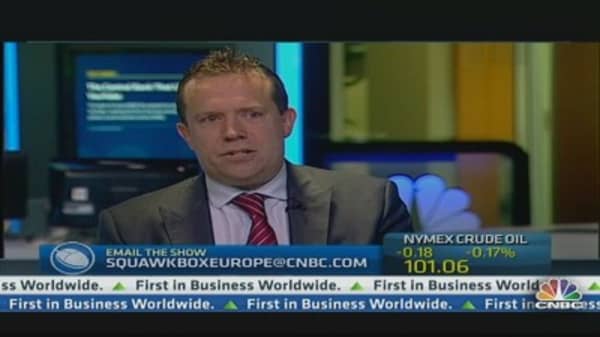European stocks may have loved the forward guidance issued by both the European Central Bank (ECB) and the Bank of England (BoE), but some economists have expressed their concern over the move, arguing that it reeks of desperation.
The Bank of England's new governor Mark Carney released a surprise statement on Thursday alongside an otherwise ordinary rate decision, whilst ECB President Mario Draghi topped the bill by indicating that the central bank expects interest rates to remain "at present or lower levels for an extended period of time."
The markets simply loved the news. The pan-European FTSEurofirst 300 Index closed nearly 2.5 percent higher, clocking its biggest rise since April and the U.K.'s FTSE surged 3.1 percent—its biggest gain for 20 months. But Steen Jakobsen, the chief economist at Saxo Bank said this willingness to communicate has led him to become less confident.
(Read More: Carney Shows Markets Who's Boss; Sterling Falls)
"Ultimately what they are telling (us) is: We have tried everything—now we can only talk to you— dazzle you with our ability to make a song and a dance," he said in a research note on Thursday.
What was more surprising at Thursday's ECB press conference which followed the rate decision, was the body language of Mario Draghi as he sold his "unprecedented" forward guidance, Jakobsen said.






